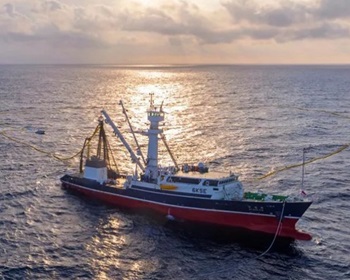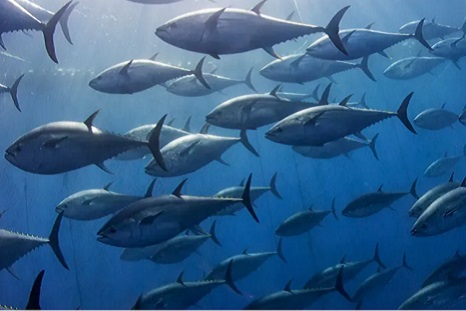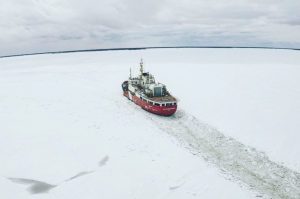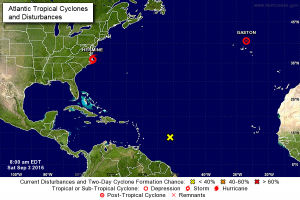Tag Archives: fisheries science
Flawed fisheries science ’cause for concern’
 An article just published in the respected science journal Marine Policy highlights the need for objective and reliable fisheries science to ensure conservation and sustainable development. It says the publication of flawed papers, some in high-profile journals, is cause for concern, and that misleading science can misinform policy and the public. The authors, who include well-known US fisheries scientist Professor Ray Hilborn, call for the rigour of peer reviews and editorial management to be strengthened, and say journal publishers must ensure the reliability of papers they publish. “The prevalence of papers conveying unjustified messages and with the potential to influence public perceptions and policies is concerning,” they say, providing examples where flawed methodology led to the exaggeration of negative impacts on ecosystems by the fishing industry – which was often then sensationalised by campaigners. In all of the examples quoted, a rebuttal was subsequently published. more, >>CLICK TO READ<< 12:46
An article just published in the respected science journal Marine Policy highlights the need for objective and reliable fisheries science to ensure conservation and sustainable development. It says the publication of flawed papers, some in high-profile journals, is cause for concern, and that misleading science can misinform policy and the public. The authors, who include well-known US fisheries scientist Professor Ray Hilborn, call for the rigour of peer reviews and editorial management to be strengthened, and say journal publishers must ensure the reliability of papers they publish. “The prevalence of papers conveying unjustified messages and with the potential to influence public perceptions and policies is concerning,” they say, providing examples where flawed methodology led to the exaggeration of negative impacts on ecosystems by the fishing industry – which was often then sensationalised by campaigners. In all of the examples quoted, a rebuttal was subsequently published. more, >>CLICK TO READ<< 12:46

In bluefin tuna, fisheries science is never neat
Pinchin’s eponymous kings are Atlantic bluefin tuna, marine predators that can weigh well over a thousand pounds, “imagine a grand piano shaped like a nuclear weapon,” as Pinchin puts it. Bluefin are extraordinary organisms: warm-blooded, keen-eyed, coated in pigment-producing cells that flash a rainbow of colors when the fish are hauled onto a boat. Pinchin excels at evoking her piscine subjects, whose sickle-shaped tails beat nearly as fast as a hummingbird’s wing. “To stand beside a just-landed giant bluefin, still slick from salt water, feels akin to standing beside a natural marvel like Niagara Falls or an erupting volcano,” writes Pinchin, a Nova Scotia-based science journalist. “There’s beauty, but also danger.” Her book isn’t just an ode to bluefin — it’s about humankind’s obsession with them, a fixation as old as our species. >click to read< 16:29
SMAST founding dean, chancellor medal recipient Brian Rothschild, reflects on state of fisheries science
 Dr. Brian Rothschild already had a stellar career in fisheries and marine science when he came to the University of Massachusetts Dartmouth 20 years ago to head the fledgling Center for Marine Science, now known as the School for Marine Science and Technology. He built that institution from the ground up, recruiting top talent and developing a strong reputation in the field of fisheries, ocean science, and industry regulations. At 81, he is officially retired, but continues his scientific work unburdened, he says, by the demands of management. Read the interview here 12:06
Dr. Brian Rothschild already had a stellar career in fisheries and marine science when he came to the University of Massachusetts Dartmouth 20 years ago to head the fledgling Center for Marine Science, now known as the School for Marine Science and Technology. He built that institution from the ground up, recruiting top talent and developing a strong reputation in the field of fisheries, ocean science, and industry regulations. At 81, he is officially retired, but continues his scientific work unburdened, he says, by the demands of management. Read the interview here 12:06
A review of the past, the present, and the future of fishers’ knowledge research: a challenge to established fisheries science
 Fishers’ knowledge research is an approach to fisheries research that has a relatively long history, yet has generally failed to become integrated into the fisheries science mainstream alongside approaches that rely primarily on the knowledge of professional scientists. Its continued position on the margins of fisheries science has not however stopped fishers’ knowledge researchers from publishing an expanding literature, which they often use to advocate for the greater consideration of fishers’ knowledge by fisheries scientists and managers. Read the rest here 09:35
Fishers’ knowledge research is an approach to fisheries research that has a relatively long history, yet has generally failed to become integrated into the fisheries science mainstream alongside approaches that rely primarily on the knowledge of professional scientists. Its continued position on the margins of fisheries science has not however stopped fishers’ knowledge researchers from publishing an expanding literature, which they often use to advocate for the greater consideration of fishers’ knowledge by fisheries scientists and managers. Read the rest here 09:35











































